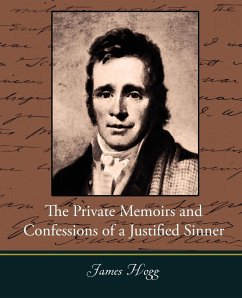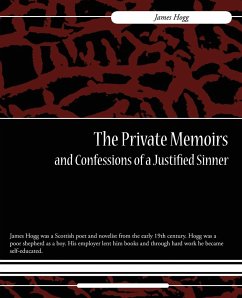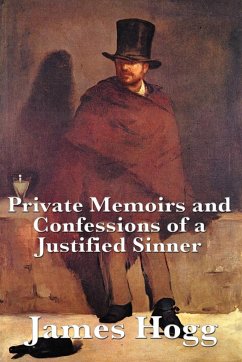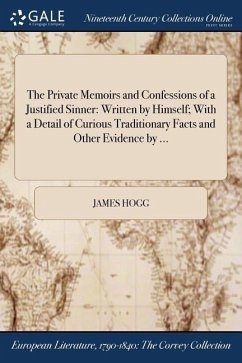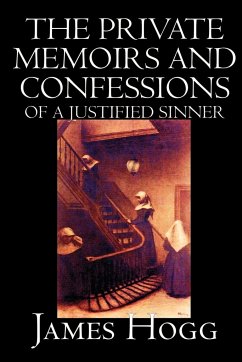
The Private Memoirs and Confessions of A Justified Sinner by James Hogg, Fiction, Literary
Versandkostenfrei!
Versandfertig in 1-2 Wochen
17,99 €
inkl. MwSt.

PAYBACK Punkte
9 °P sammeln!
"I was born an outcast in the world, in which I was destined to act so conspicuous a part. My mother was a burning and a shining light. But she was married to a man all over spotted with the leprosy of sin. She fled from his embraces the first night after their marriage. . . ." James Hogg wrote about the supernatural powerfully and convincingly, especially in his best-known novel, The Private Memoirs and Confessions of a Justified Sinner, published in 1824; it has been called "the greatest of all Scottish novels."



